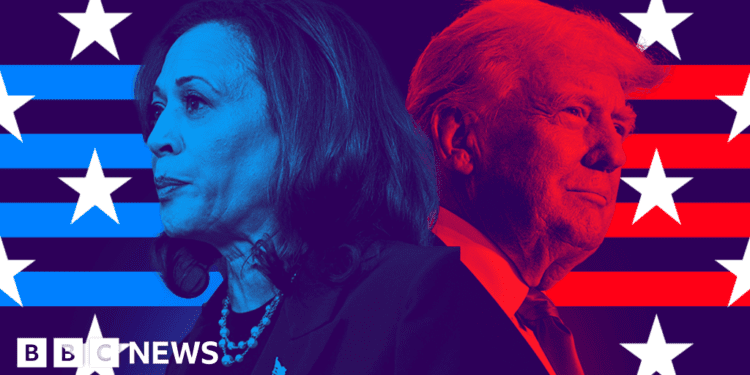The Trump campaign says gender has nothing to do with it. тАЬKamala is weak, dishonest, and dangerously liberal, and thatтАЩs why the American people will reject her on November 5th,тАЭ it said this week. Although Bryan Lanza, a senior adviser to the campaign, texted me to say heтАЩs confident Trump will win because тАЬthe male gender gap gives us the edgeтАЭ.
Last time a woman ran for president, negative attitudes to her gender were clearly a factor. Eight years ago Hillary Clinton touted her being the first female nominee of a major party. The campaignтАЩs slogan тАЬIтАЩm with HerтАЭ was a not very subtle reminder of her trailblazing role.
Pennsylvania Congresswoman Madeleine Dean remembers discussing ClintonтАЩs candidacy with voters. I spent an afternoon with Dean as she campaigned in her district this week and she told me that back in 2016 people would tell her, тАШThereтАЩs just something about her.тАЩ
She says she soon realised that тАЬIt was about the тАШher.тАЩ That was a thing. It was that [Hillary] was a woman.тАЭ
While Dean thinks that sentiment is less prevalent today, she acknowledges that even now, тАЬthere are certain people who just think тАШA powerful woman? No, a bridge too far.тАЩтАЭ
A lot has changed for women since 2016. The #MeToo movement in 2017 increased awareness of the subtle – and the not so subtle – discriminations women face at work. It changed the way we talk about women as professionals. MeToo may have made it easier for a candidate like Harris to secure the nomination.
But those big steps forward on the issues of diversity, equity, and inclusion were interpreted by some as a step back, especially for young men who felt theyтАЩd been left behind. Or the changes were simply a step too far for conservative Americans who prefer more traditional gender roles.
So for some voters, this NovemberтАЩs election has turned into a referendum on gender norms, and the social upheavals of recent years. This seems particularly true for the voters Kamala Harris has a tough time reaching: the young men who live in a world that is rapidly changing for, well, young men.
тАЬYoung men often feel like if they ask questions they are labeled as misogynist, homophobic or racist,тАЭ says John Della Volpe, director of polling at the Harvard Institute of Politics.
тАЬFrustrated at not feeling understood, many then get sucked into a bro-culture of Donald Trump or Elon Musk. They look at who the Democrats prioritise – women, abortion rights, LGTBQ culture – and they ask тАШwhat about us?тАЩтАЭ
Source link : http://www.bing.com/news/apiclick.aspx?ref=FexRss&aid=&tid=671dcc84bf7744279a8a9534f8cea824&url=https%3A%2F%2Fwww.bbc.co.uk%2Fnews%2Farticles%2Fcjr430gry81o&c=3157939201996220426&mkt=en-us
Author :
Publish date : 2024-10-26 18:14:00
Copyright for syndicated content belongs to the linked Source.












